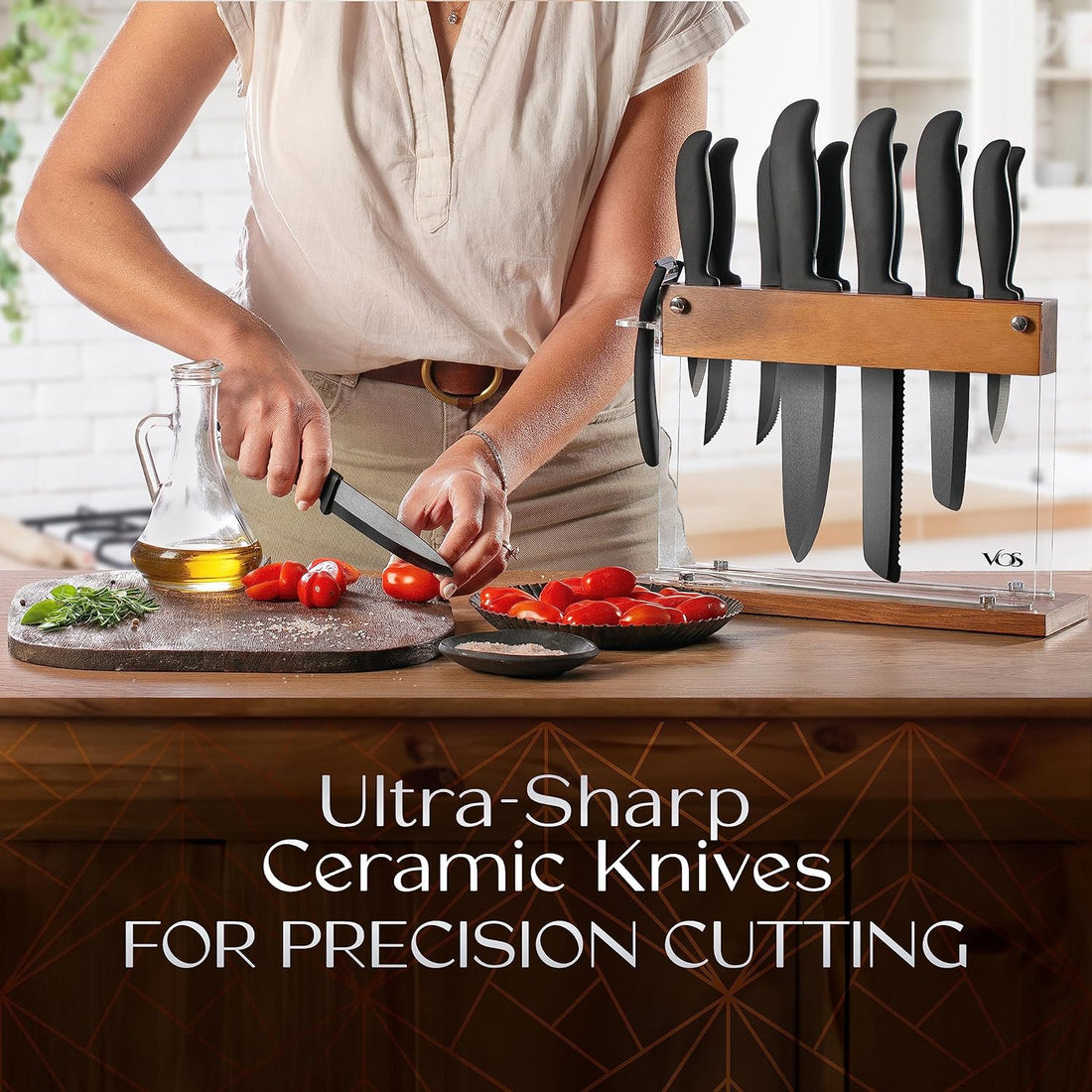When it comes to choosing the right knife for your kitchen, the debate between ceramic knives and stainless steel knives is a hot topic among culinary enthusiasts and home cooks alike. While stainless steel knives have been the traditional choice for decades, the emergence of ceramic knives has brought a new contender to the forefront. In this article, we will explore the top five advantages of ceramic knives over their stainless steel counterparts, highlighting why a ceramic knife or a ceramic knife set might just be the perfect addition to your kitchen arsenal.
1. Exceptional Sharpness and Edge Retention
One of the most significant advantages of ceramic knives is their exceptional sharpness and edge retention. Ceramic knives are made from zirconium dioxide, also known as zirconia, which is second only to diamonds in terms of hardness. This incredible hardness allows ceramic blades to be sharpened to a razor-edge that can maintain its sharpness up to 10 times longer than stainless steel blades. This means less frequent sharpening and consistently precise cuts, making a ceramic knife an excellent choice for slicing fruits, vegetables, and boneless meats.
2. Rust and Corrosion Resistance
Unlike stainless steel knives, which can rust or corrode when exposed to acidic foods or moisture, ceramic knives are completely resistant to rust and corrosion. The non-metallic nature of ceramic blades means they won't react with your food, ensuring that your slices remain pure and uncontaminated. This resistance to corrosion not only contributes to the longevity of a ceramic knife but also makes it a healthier choice for food preparation.
3. Lightweight and Easy to Handle
Ceramic knives are significantly lighter than stainless steel knives, reducing fatigue and making them easier to handle, especially during lengthy food preparation sessions. This lightweight nature does not compromise the knife's balance or effectiveness, allowing for precise and effortless cutting. For those who spend a lot of time in the kitchen, the ergonomic benefits of a ceramic knife set can be a game-changer.
4. Minimal Maintenance Required
The durability and rust resistance of ceramic knives mean they require much less maintenance compared to stainless steel knives. Without the need for frequent sharpening or the risk of rust, caring for a ceramic knife is as simple as a quick wash with soap and water. Additionally, the non-porous surface of ceramic knives prevents bacteria and odors from being absorbed into the blade, ensuring a cleaner and more hygienic cutting tool.
5. No Metallic Taste or Smell
Ceramic knives do not impart any metallic taste or smell to your food, preserving the original flavor and aroma of your ingredients. This is particularly advantageous when preparing fruits and vegetables, as it ensures that the natural flavors of your produce are left intact. For culinary enthusiasts who value the purity of their ingredients, the chemical inertness of a ceramic knife is a clear advantage over stainless steel.
Conclusion
While stainless steel knives have their own set of benefits, the advantages of ceramic knives - including their exceptional sharpness, rust resistance, lightweight design, minimal maintenance, and ability to preserve the taste and smell of food - make them a compelling choice for many kitchen tasks. Whether you're a professional chef or a home cook, investing in a ceramic knife set can elevate your culinary experience by combining performance with practicality. As the popularity of ceramic knives continues to grow, it's clear that they offer a cutting-edge alternative to traditional stainless steel knives, worthy of consideration for any modern kitchen.

